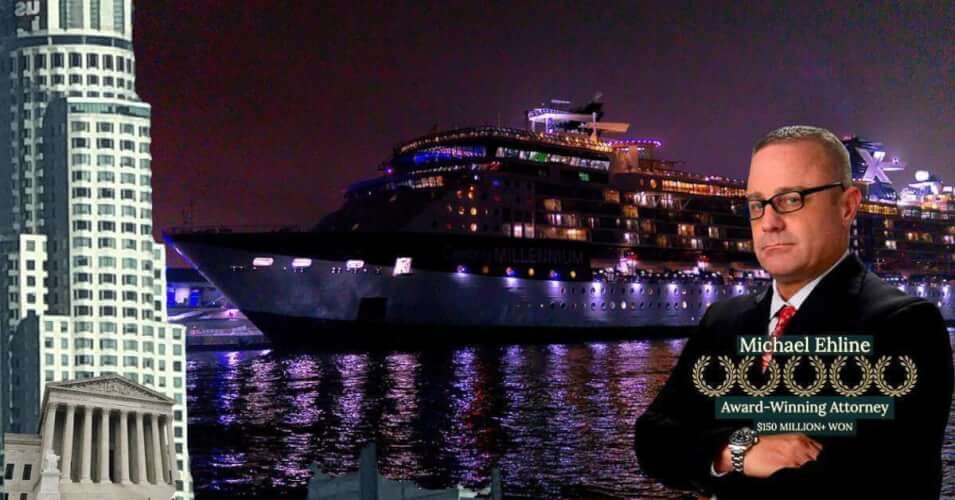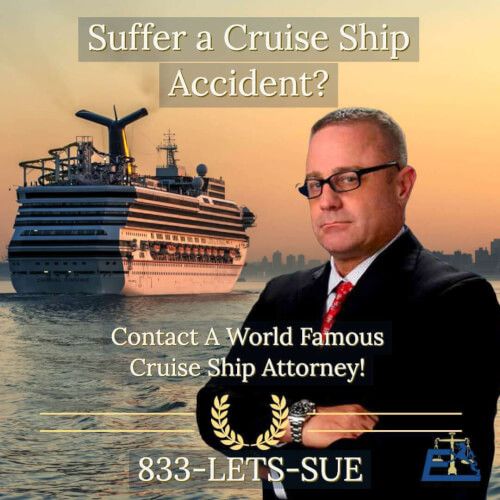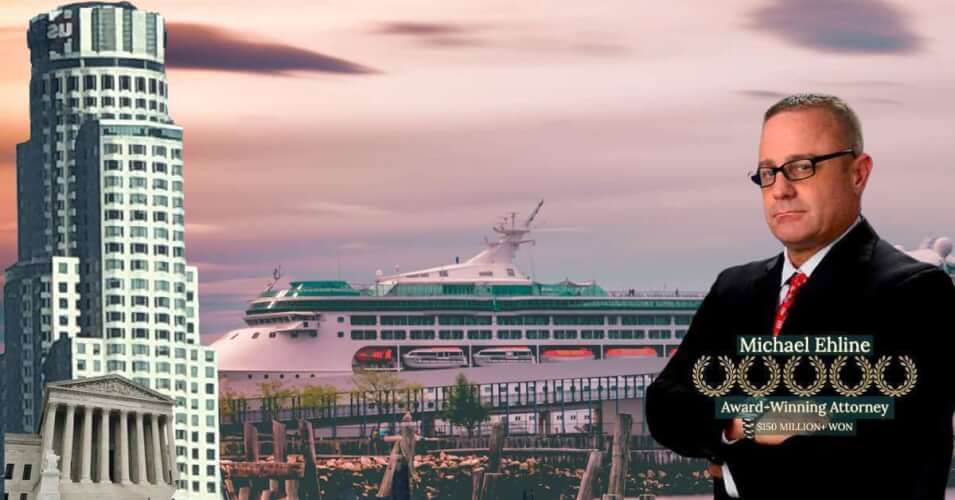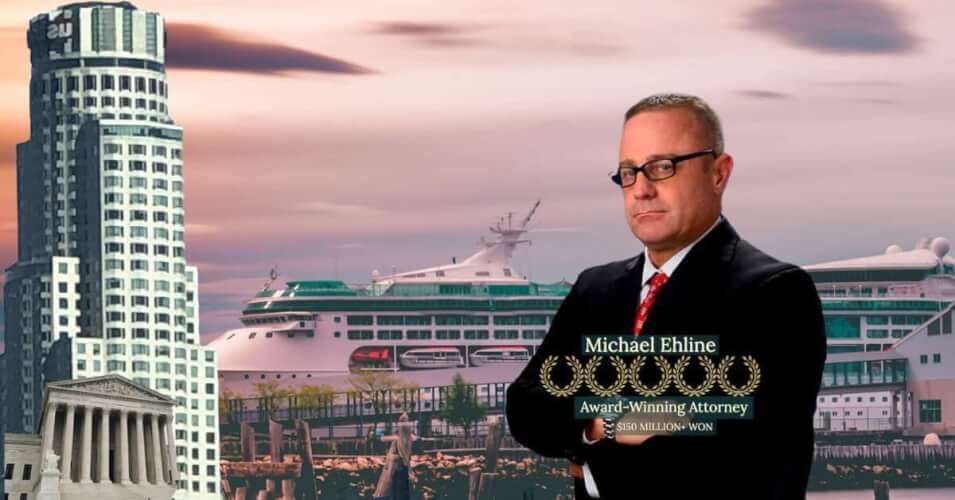Why Do Pirates Attack Cruise Ships?

Before the ongoing pandemic, pirate attacks were a huge concern for passengers aboard a cruise ship. The pirate attacks have fallen, and the pirate fairy tales have faded over the years, but it remains a threat to passengers in the modern day.
A pirate attack on a ship happens more often than you would think. However, now more pirates are attacking cruise ships rather than cargo ships.
Most cases happen in the Gulf of Aden, Somalia, parts of Asia, the Red Sea, and more, with a country’s State Department constantly issuing travel warnings for such events.
Have You Been on One of the Ships Attacked by Pirates? Call Ehline Law
- What Is Modern Piracy?
- How Common Is a Pirate Threat on a Cruise Ship?
- Do Cruise Lines Follow Any Law to Protect Passengers from Pirate Attacks?
We’ve seen recent movies like “Captain Phillips,” where Somali pirates capture a ship near the Somali coast; however, these are just movies. What about real life? And do cruise ships protect their passengers today in case of a pirate attack?
What Is Modern Piracy?
Gone are the days when pirates took over a cargo ship with swords and skills. Piracy has become a multi-billion dollar business run by organized crime syndicates. Cruise ship passengers have millions of dollars onboard in cash, valuables, and other assets that pirates are interested in. The amount gets split among the echelons of the crime group, with each pirate receiving around $30,000 to $75,000 for the hijacking.
How Common Is a Pirate Threat on a Cruise Ship?
Pirates were famous for taking control of cargo vessels with their AK-47s and angry young men with hot-tempered attitudes; however, over the years, their focus has turned towards cruise ships.
There have been six reported incidents of pirates attempting to board ships, mainly cruise ships, in the last decade. Let’s look at these details to determine the intensity of these attacks.
- In 2005, pirates made an unsuccessful attempt by using machine guns and rocket-propelled grenades on Seabourn Spirit, a cruise ship passing in the area just 100 miles away from the coast of Somalia. That rocket-propelled grenade attack failed thanks to the efforts of the security team.
- In 2008, Le Pont, a french luxury cruise liner, became hostage to pirates after evasive maneuvers failed. Fortunately, there were no passengers on the ship, only crew members who got released after the cruise line paid the ransom.
- In 2008, during the same month as the Le Pont incident, pirates approached Ocean’s Nautica. However, they could not hijack the ship as the cruise ship had all the equipment to ward off a pirate attack.
- In 2009, pirates attempted to capture MSC Melody. Passengers over the ship noticed the pirates making their way to the boat and alerted the cabin crew while throwing deck chairs at them to stall their climb to the ship. The pirates fired at the passengers, but no one got seriously injured. The ship’s captain made sharp turns while the Israeli security officers ensured none of the pirates made their way to the decks causing them to flee eventually.
- In 2011, Spirit of Adventure was riding over the Indian Ocean when the captain of the ship noticed a group of pirates in pursuit of the ship. Luckily, the boat had enough horsepower to speed up and leave the pirates behind, so the attack failed.
- In 2012, pirates attacked the Azmara Journey while in their small ships, but the crew and the passengers used tactics to scare the pirates. Some even reported that the crew members aboard the particular ship fired three flares.
These six cruise ships attacked by pirates with automatic weapons may not weigh in comparison to pirates attempting to hijack fishing boats, cargo ships, and other non-passenger vessels. But they clearly are a huge concern for passengers aboard cruise liners. Sonic waves and newer methods are now being used, with limited success at evading pirate activity on the high seas.
Do Cruise Lines Follow Any Law to Protect Passengers from Pirate Attacks?
There is no particular law in place that cruise lines must follow to ensure the safety of their passengers from pirate attacks. However, International Maritime Organization suggests some tactics to evade pirate attacks and ransom paid for terrorist attacks.
- Ships must train their staff and crew members on dealing with pirate attacks by having a systemic plan that they must follow; even the warning shots are fired.
- Technological tools must be present on the ship for crew members to use and alert the staff and passengers on any upcoming pirate ships. These tools may include long-range acoustic devices, night vision devices, water cannons, and barbed wires for security.
- Ships must sail with all their lights closed to avoid any attention on dangerous waters; however, if the boat gets detected by pirates, the crew members must turn on all the lights to deter any pirate attacks and let them know the crew is ready for them.
- Fire hoses with tremendous water pressure can deter pirates in a boat heading to a cruise ship.
- Depending on the navigational capabilities of the ship, the captain can use heavy wheel movements to create enough force in the waves to ward off small pirate ships.
Some cruise lines take security measures seriously and get information and insights on the situation at sea from tracking companies and maritime information.
These cruise lines also have security officers aboard the ship who are always looking for suspicious movements in the sea. Blogger, Anastasia Tyler reported that during her cruise, two well-equipped snipers were on board her craft to fight off attackers from boarding illegally. Our Los Angeles personal injury attorneys will explain everything when you receive your free consultation.
Call Ehline Law for Assistance
Pirates are a concern for passengers. However, a more significant problem is the negligence of cruise lines, which causes multiple accidents yearly. Contact Ehline Law and our Los Angeles cruise ship attorneys at (213) 596-9642 if you’ve gotten injured on a cruise ship and are seeking legal help!




